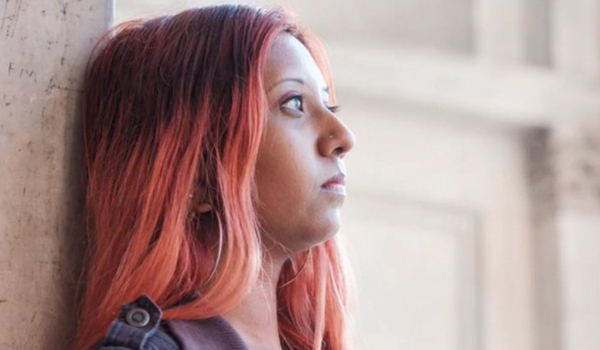Police failing survivors with communication needs, according to new research
Victims and survivors with communication needs are more likely to be afraid to contact the police for fear of discrimination and violence based on their previous experiences and interactions, according to a new report.
The research by a group of leading women’s rights organisations found that more than half of the survivors had experienced police failures to communicate at an appropriate level or make reasonable adjustments.
Nearly half were not informed about the process or their rights after contacting the police to report abuse or violence, while 44 per cent had prior experience of discrimination, including racism, ableism and xenophobia, from the police.
The report, ‘Listen to us!’, released on Thursday (April 20), exposes how public bodies, particularly the police, are “failing to comply with their obligations under the Equality Act 2010 to eliminate discrimination, harassment, and victimisation when interacting with survivors facing communication barriers” – negatively impacting their experiences of safety and access to justice.
It says the police and other criminal justice agencies should “ensure all resources are produced in accessible formats and available in other community languages”.
It also recommends police training should include more in-depth equalities work – addressing discrimination, myths and stereotypes about sex, race and ethnicity, social class, disability and other protected characteristics concerning victims and survivors.
In addition, it says police and crime commissioners should proactively engage and work with specialist domestic abuse and sexual violence services and conduct local needs assessments to ensure that specialist ‘by and for’ services are appropriately resourced.
“Within the violence against women and girls (VAWG) sector, we know that women and girls who are black, minoritised, migrant, deaf, disabled, refugee and asylum seeking, or Gypsy, Roma and Traveller face complex barriers in accessing services they’re entitled to,” says the End Violence Against Women Coalition (EVAW).
Communication barriers include those faced by women who are: blind or visually impaired; speakers of languages other than English; deaf or hard of hearing; have communication impairments; have learning difficulties; or have basic or no access to literacy.
“However, women can encounter multiple, intersecting communication barriers; creating unique communication needs. For example, a migrant woman who is also disabled will face specific barriers to accessing services,” says the EVAW.
National Police Chiefs’ Council lead for domestic abuse, Assistant Commissioner Louisa Rolfe, said: “We accept that while improvements have been made in tackling violence against women and girls and domestic abuse, there is still much more to be done.
“We appreciate the vital work done by the organisations which have contributed to this report. We will be examining the report’s recommendations in detail to see what policy and practice we can take forward in improving our response for victims.”
Among other recommendations to improve access to support and justice for victims and survivors with communication needs, the report says the Victims and Prisoners Bill should include a legal duty to ensure victims and survivors’ rights to communication support, similar to those accused of a crime
It also wants the Government to commit to creating a sustainable funding model for the provision of specialist user-led deaf and disabled organisations and ‘by and for’ services which are independent, trauma-informed and offer advocacy and ‘wraparound’ support for all victims/survivors of VAWG.
Isabel Ros López, membership manager at the EVAW and member of the VAWG Sector Communication Barriers Working Group, said: “This latest evidence echoes what specialist ‘by and for’ specialist organisations have long raised the alarm about. The police and public bodies need to do much more to fulfil their duties under the Equality Act 2010.
“Specialist services led by and for black, minoritised, migrant, deaf or disabled women are best placed to provide the tailored support women need. However, these services are chronically under-funded and facing increasing demand as well as soaring running costs during the cost of living crisis.
“We call on the police and all public bodies to listen to us, implement our recommendations and ensure access to safety, adequate services and justice for all women.”
Among the case studies highlighted in the report was a survivor of domestic abuse and sexual violence whose first language was not English. Rape Crisis South London said: “When R attended a meeting with the police, no support or interpreting service were provided. She was handed a ‘no further action’ letter that provided no rationale, with no understanding of what the letter meant, and had to struggle to use Google Translate to understand the decision that had been made.”
Other case studies included:
- L was married to a perpetrator who became aggressive and controlling. When he learned she wanted to leave him, the abuse escalated. He threatened to cancel her visa application as an EU spouse and have her deported. She went to the police and tried to report him. Without providing an interpreter, the police officer tried to communicate with her using Google Translate. The survivor could not understand anything and she was unsure whether the officer understood her either. (LAWRS).
- A deaf person needed police assistance. However, she did not want her family to be involved and requested to make her disclosure outside the home. The police officer asked if they could go into the car as they were cold. In the car, they proceeded to take a statement from the BSL user with a pen, paper and gestures. The client was left exceptionally vulnerable in this scenario, unable to fluently express herself and exposed to further distress as a consequence of not being able to communicate at an appropriate level. (SignHealth).
- Y was experiencing domestic abuse, and her mental health was suffering hugely. The police were unaware that 85 per cent of Gypsies, Roma and Travellers live in bricks and mortar housing and did not identify her ethnicity correctly. The police failed to safeguard and support Y appropriately as a result Y died by suicide a few days later. (The Traveller Movement).


